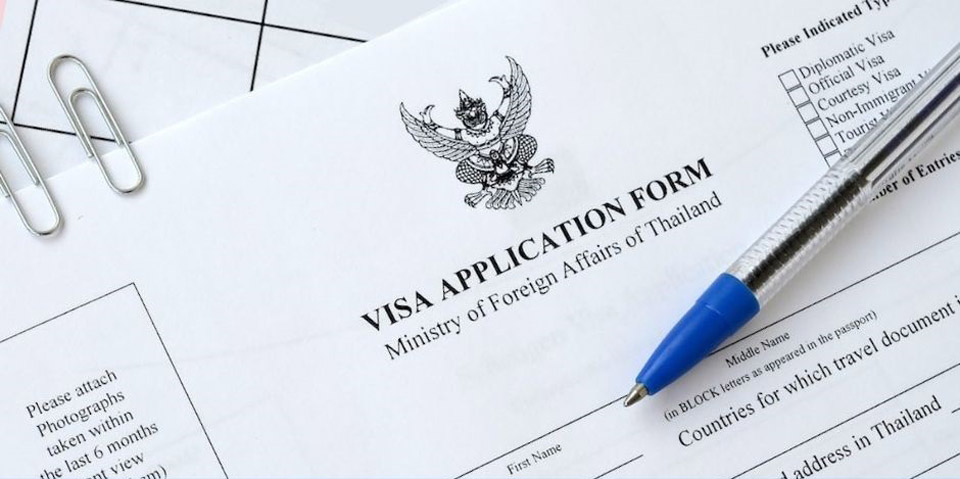The LTR Visa Thailand is a premium residency program introduced in 2022 to attract high-net-worth individuals, retirees, skilled professionals, and remote workers. Offering a 10-year residency with significant financial, lifestyle, and tax benefits, the LTR Visa is more than just a long-term visa—it is a sophisticated tool for those seeking stability and opportunity in Southeast Asia.
This guide provides an in-depth analysis of the LTR Visa’s benefits and privileges, exploring how they work, who can access them, and how they can be leveraged to maximize the Thai residency experience.
I. Understanding the LTR Visa’s Core Benefits
A. 10-Year Residency: Long-Term Stability Without Renewals
-
The LTR Visa offers a 10-year residency, divided into two 5-year periods.
-
The initial visa is issued for 5 years and can be renewed for an additional 5 years without reapplying.
-
This extended validity provides long-term security, avoiding the need for annual visa renewals, which are standard for other Thai visas (Retirement Visa, Non-B Visa).
Who Benefits?
-
Retirees: Secure a long-term base in Thailand without the stress of annual renewals.
-
Investors: Maintain a stable base for managing Thai investments.
-
Remote Workers: Live in Thailand while working for foreign companies without frequent re-application.
Real-World Example:
John, a 67-year-old retiree from the UK, uses his LTR Visa under the Wealthy Pensioner category to enjoy 10 years of uninterrupted residency without the hassle of annual extensions.
B. Multi-Entry Privilege: Unlimited Travel Without Restrictions
-
The LTR Visa is a multiple-entry visa, allowing holders to enter and exit Thailand as often as they wish during the 10-year period.
-
This is particularly beneficial for business professionals, remote workers, and retirees who travel frequently.
Who Benefits?
-
Business Professionals: Freely travel between Thailand and other countries for meetings.
-
Remote Workers: Maintain international work without losing Thai residency.
-
Retirees: Spend part of the year in Thailand and part abroad.
Real-World Example:
Maria, a Spanish digital marketing consultant, uses her LTR Visa to work remotely while traveling between Thailand, Spain, and other countries without any restrictions.
C. Family Inclusion: Long-Term Residency for Loved Ones
-
LTR Visa holders can include up to four dependents, such as:
-
Spouse.
-
Children (under 20 years old).
-
-
Dependents receive the same 10-year visa with all associated benefits.
Who Benefits?
-
Retired Couples: Both spouses can enjoy long-term residency under a single visa.
-
Expat Families: Secure stable residency for children without separate visa applications.
Real-World Example:
David, a Canadian entrepreneur, holds an LTR Visa as a Wealthy Global Citizen. His wife and two children are included under the same visa, providing long-term stability for his family.
D. Simplified Immigration Procedures: Annual Reporting Instead of 90 Days
-
LTR Visa holders only need to report their address once a year, replacing the standard 90-day reporting required for other visas.
-
This streamlined process minimizes administrative burdens, especially for retirees and remote workers.
Who Benefits?
-
Retirees: Avoid the inconvenience of visiting immigration every 90 days.
-
Business Professionals: Spend less time dealing with immigration procedures.
-
Remote Workers: Maintain a Thai base without constant reporting.
Real-World Example:
Li Wei, a Chinese investor, lives in his Bangkok condominium. With the LTR Visa, he only needs to report his address once a year, saving time and effort.
II. Financial Privileges: Tax Optimization and Investment Opportunities
A. Tax Benefits: Legal Tax Optimization for Qualified Applicants
-
Flat 17% Personal Income Tax Rate for Highly Skilled Professionals:
-
This is significantly lower than the standard progressive tax rate (up to 35%).
-
-
Exemption from Foreign Income Tax for Work-from-Thailand Professionals:
-
Foreign income is not taxed in Thailand if it is not remitted to Thailand in the same calendar year.
-
-
No Capital Gains Tax on foreign investments.
Who Benefits?
-
Highly Skilled Professionals: Optimize their income with a reduced tax rate.
-
Remote Workers: Legally avoid Thai tax on foreign income if not remitted.
-
Investors: Protect foreign investment gains from Thai taxation.
Real-World Example:
Ahmed, a Canadian software engineer, earns USD 120,000 annually from a U.S. company while living in Thailand. Since his income is earned abroad and not remitted to Thailand, he is not subject to Thai income tax.
B. Investment Opportunities: Secure Asset Management in Thailand
-
LTR Visa holders can invest in:
-
Freehold condominiums (up to 49% of the total unit area in a condominium project).
-
Leasehold property (land or villas for up to 30 years, renewable).
-
Thai government bonds.
-
Direct equity in Thai companies.
-
-
Investments in Thai property and businesses can be used to meet LTR Visa eligibility requirements for Wealthy Global Citizens and Pensioners.
Who Benefits?
-
Investors: Diversify portfolios with Thai assets.
-
Retirees: Secure a long-term home without complex ownership structures.
-
Digital Nomads: Maintain foreign investments without Thai capital gains tax.
Real-World Example:
Maria, a Spanish investor, uses her LTR Visa to purchase a luxury condominium in Bangkok and invest in Thai government bonds.
III. Work Authorization: Digital Work Permits for Remote and Skilled Professionals
A. Flexible Legal Work Without Complex Procedures
-
LTR Visa holders in the Work-from-Thailand Professionals and Highly Skilled Professionals categories can apply for a digital work permit, allowing them to work legally in Thailand.
-
The digital work permit is processed online through the Board of Investment (BOI).
-
This eliminates the need for a traditional Non-B Visa and Work Permit, reducing administrative complexity.
Who Benefits?
-
Remote Workers: Work for foreign companies without Thai tax on foreign income.
-
Highly Skilled Professionals: Legally work in Thailand in targeted industries (technology, healthcare, renewable energy).
-
Digital Nomads: Maintain remote employment while residing in Thailand.
Real-World Example:
John, an Australian software developer, uses his LTR Visa and digital work permit to work remotely for a U.S. company while living in Chiang Mai.
IV. Premium Airport and Concierge Services
A. Fast-Track Immigration at Major Airports
-
LTR Visa holders enjoy fast-track immigration clearance at Suvarnabhumi, Don Mueang, and Phuket airports.
-
This is especially useful for frequent travelers and business professionals.
B. VIP Airport Concierge Service (Elite Personal Assistant)
-
Assistance with immigration clearance.
-
Luggage handling and priority check-in.
-
Available at major Thai airports.
Who Benefits?
-
Business Travelers: Save time during international trips.
-
Frequent Flyers: Stress-free airport experience.
Real-World Example:
Katerina, a Russian business consultant, arrives at Suvarnabhumi Airport and is escorted through fast-track immigration, avoiding long queues.
V. Compliance and Obligations
A. Annual Reporting
-
LTR Visa holders must report their address once per year.
B. Notification of Changes
-
Any change in employment, financial status, or residence must be reported to the BOI and Immigration Bureau.
C. Tax Compliance
-
LTR Visa holders who reside in Thailand for 183 days or more in a calendar year are considered tax residents.
-
Taxable income includes:
-
Income earned in Thailand.
-
Foreign income remitted to Thailand in the same year it is earned.
-
D. Legal Compliance
-
LTR Visa holders must maintain a clean criminal record.
-
Violations of Thai law may result in visa cancellation.
VI. Conclusion
The Long-Term Resident (LTR) Visa in Thailand is a sophisticated residency program offering long-term security, financial optimization, and premium lifestyle benefits. By understanding its privileges and compliance obligations, qualified foreigners can maximize their Thai residency experience.

